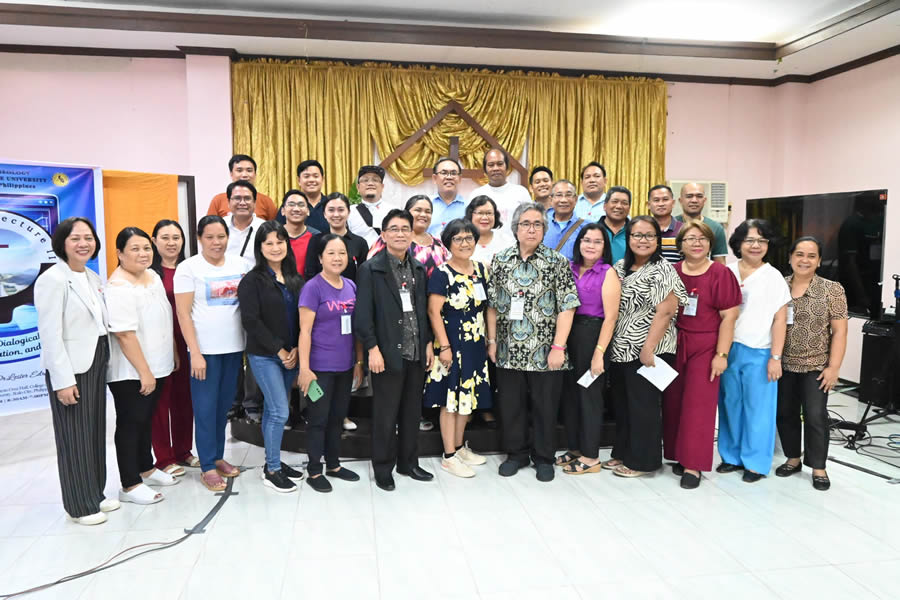By Karren Jay G. Asgar
Attendees during the Ancheta Lecture II held at the Celiz-Ancheta-Pagsuberon Cruz Hall, College of Theology, on July 1–2, 2024.
The CPU-College of Theology hosted Ancheta Lecture II with the theme “Christian Ministries: The Dialogical Intersections of Formation, Contextualization, and Transformation,” held at the Celiz-Ancheta-Pagsuberon Cruz Hall, College of Theology, on July 1–2, 2024.
On its first day, the program started with a registration wherein participants from Aklan, Antique, Capiz, Negros, and Iloilo met in groups to finalize their presentations, assisted by their respective facilitators. After which, an opening activity was led by the Ancheta Lecture faculty.
Resource facilitator, Rev. Dr. Lester Edwin J. Ruiz, graced the event with his profound insights that sparked meaningful discussions among attendees. Rev. Ruiz currently works as the senior director of accreditation and global engagement for the Association of Theological Schools (ATS). He focuses on continuing to explore opportunities to build strategic partnerships with theological educators worldwide. He was a faculty member of the New York Theological Seminary (NYTS) in New York City in 1997. He was a former associate professor of political science at International Christiam University, Tokyo, Japan. He is also an ordained minister of the Convention of Philippine Baptist Churches, Inc.
In the afternoon, plenary discussions were eagerly participated in by the attendees, which fostered a dynamic exchange of ideas. A small group discussion focusing on the future(s) of formation was led by a small group facilitator. The resource person led their closing session with the question, “What have we learned?”. The following day, an evaluation meeting was conducted by the Planning Committee.
The primary goal of the said lecture is to define Christian ministry formation, analyze spiritual disciplines’ impact, discuss challenges and opportunities, and develop practical strategies for on-going formation. Participants were able to articulate the significance of formation, identify spiritual maturity practices, inspire deeper engagement, equip themselves with tools, enhance ministry effectiveness, and create personal spiritual growth plans.

